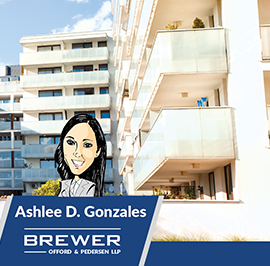Will They Be Considered A Part Of The Total Points and Fees Payable At Closing?
On December 2, 2004, the California Court of Appeal, Fourth Appellate District evaluated whether a yield spread premium (YSP) should be included as part of the total points and fees during closing under the definition in Financial Code Sections 4970(b)(1).
Plaintiff Wolski had borrowed $185,000 from Fremont Investment & Loan. Wolski alleged that it was a covered loan under Section 4970(b)(1) for the following reasons:
1) His loan amount was below $250,000; and
2) His points and fees at closing were over six percent.
Wolski had included $3,700 YSP into his calculations, causing the total figure to be 6.47% of the total loan. Without the YSP, the loan would not have been a covered loan since his closing costs totaled $8,274, only 4.5% of the total loan.* Fremont Investment & Loan brought a successful demurrer and Wolski appealed. The Fourth Appellate District affirmed and issued an opinion published as “Wolski v. Fremont Inv. & Loan, 22 Cal.Rptr.3d 582, 2004 Daily Journal D.A.R. 15,056 (Cal.App. 4 Dist. Dec 02, 2004) (NO. G033169).”
At present, the Financial Code Sections (enacted as part of the California’s Predatory Lending Law in 2001) defines covered loans as those below $250K and having “total points and fees payable by the consumer at or before closing for a mortgage or deed of trust will exceed 6 percent of the total loan amount.” Technically, the yield spread premium is not actually paid by the “consumer” but instead paid by the lender to the broker. However, Wolski pointed out that ultimately the borrower pays the higher interest over the life of the loan, since the YSP is the difference between what the lender was willing to loan for (the lesser rate) and what the broker originated the loan for (the greater of the two).
As Wolski’s lender pointed out, Wolski had to overcome to major hurdles in interpreting the statute. First, the costs had to be paid by the borrower. Second, the costs had to be at or before closing. A YSP is neither, and Wolski failed to convince the Court otherwise.
The Fourth Appellate District also went on to find that nothing in the Legislative history for the code section indicated an intent that closing costs should include charges that would payable over the life of the loan.
Despite Wolski’s loss at the trial court level, and loss at the appellate level, on January 14, 2005, a rehearing for Wolski was granted and this opinion is now up in the air pending the outcome of the new hearing.
As always, the tension between regulating predatory lending practices while assuring a healthy availability of capital for all borrowers is at play here. Ultimately, the new hearing on Wolski’s case is likely to turn on legislative intent. When the Predatory Lending Law was drafted, did legislators mean to include charges paid by the lender to brokers into the definition of a covered loan?
For CMA members that charge a service fee based on the interest rate of the loan, or those that pay or collects a yield spread premium, the outcome of this case will significantly impact the manner in which fees are earned. CMA’s Amicus Committee Chair, Steve Leidner is spearheading CMA’s efforts to file an Amicus brief, and educate the judicial panel on CMA’s position and California’s lending industry.




